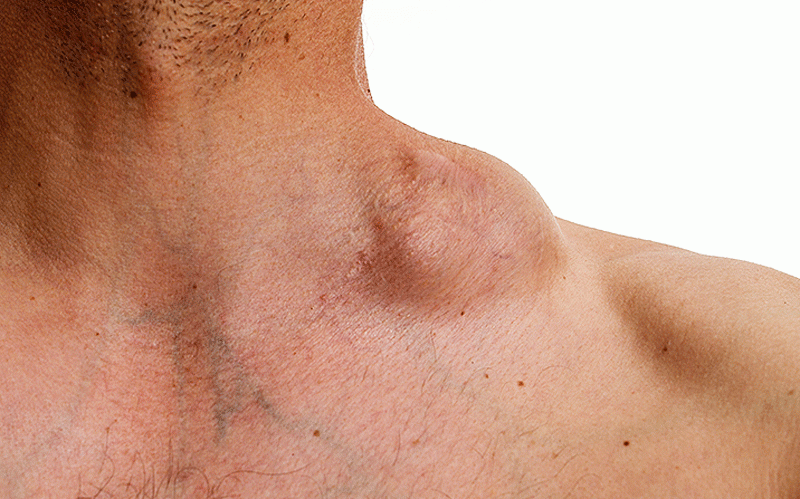
Lymphoma is one type of cancer which can be missed by clinicians if enough investigations are not done.
On a number of occasions, some patients are treated for diseases like tuberculosis (TB) because of the similarities of many of the symptoms.
Non-Hodgkin lymphoma ranks as the 10th or 12th most frequent cancer in males and females worldwide, respectively, with an estimated 509 590 new cases and 248 724 deaths in 2018.
Hodgkin’s lymphoma is a rare type of cancer that affects the B-lymphocytes and leaves the patient susceptible to infection.
Estimates suggest that around one in 25 000 people is affected by this cancer every year and the condition accounts for just 1% of all cancers that occur worldwide.
Imagine those cases that are not detected especially in low-resource settings.
Lymphoma is a cancer of the lymphatic system, which is part of the body’s germ-fighting network.
The lymphatic system includes lymph nodes, spleen, thymus gland and bone marrow. Lymphoma can affect all those areas as well as other organs throughout the body.
- Health talk: By Dr Johannes Marisa – Drug abuse is now too rampant
- Health talk: By Dr Johannes Marisa – Drug abuse is now too rampant
- 2022: A year of mixed emotions for Byo arts
- Let’s be vigilant, Lymphoma is in our midst
Keep Reading
Many types of lymphoma exist. The main subtypes are:
lHodgkin’s Lymphoma
lNon-Hodgkin’s Lymphoma
Symptoms
Signs and symptoms of lymphoma may include:
lPainless swelling of lymph nodes in your neck, armpits and groin.
lPersistent fatigue
lFever
lNight sweating
lShortness of breath
lUnexplained weight loss
lItchy skin
NB: The above-mentioned symptoms are also found in common diseases like TB in our settings so thorough investigations have to be carried out.
Risk factors
There are so many risk factors for lymphoma and these include:
Impaired immune system: Those with immunosuppression like HIV and Aids are at higher risk of developing this cancer.
Sex: Males are at higher risk than females
Certain infections: Some infections are associated with increased risk of lymphoma, including Epstein-Barr virus and Helicobacter pylori infections.
Hodgkin’s lymphoma occurs most often in early adulthood (between ages 15-40) and especially in the 20s or late adulthood (after 55 years).
Family history: About 5% of cases have a family link with Hodgkin’s lymphoma.
Non-Hodgkin’s lymphoma has higher risk with infections with HIV, HTLV-1, HHV8 or Epstein-Barr virus.
Radiation exposure
Previous chemotherapy or radiation therapy.
Diagnosis
The diagnosis of lymphoma involves examinations and tests:
Physical examination: Your doctor can check for swollen lymph nodes, including in your neck, underarm and groin as well as a swollen spleen or liver.
Full blood count: Can look at the number of cells which include haemoglobin, platelets or white cells.
Kidney function tests: Check the state of the kidneys.
Liver function tests
Lymph node biopsy: A lymph node can be taken by a surgical procedure. It can be the entire lymph node or part of it. The lymph node will be sent to the laboratory for histological analysis and a diagnosis of lymphoma can be done.
Bone marrow testing: A bone marrow aspiration and biopsy procedure involves inserting a needle into your bone to remove a sample of bone marrow.
Imaging tests: Ultrasound scans of the abdomen, computed tomography, magnetic resonance imaging and positron emission tomography.
Treatment
Treatment of lymphoma depends on the type and stage of the disease, your overall health. The goal of treatment is to destroy as many cancer cells as possible and to bring the disease into remission. Treatments include:
Active surveillance: Some forms of lymphoma are very slow growing. You and your doctor can decide to wait to treat your lymphoma when it causes symptoms or signs that interfere with your daily activities.
Chemotherapy: Cyclophosphamide, Doxorubicin, Vincristine and Prednisolone. Chemo is often combined with an immunotherapy drug, especially Rituximab.
Radiation
Bone marrow transplant
Do not forget that Covid-19 is still around. Remain vigilant. Let complacency never overtake you!
*Dr Johannes Marisa is a medical doctor and a PhD holder who can be accessed on email: doctormarisa@gmail.com.A










